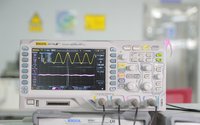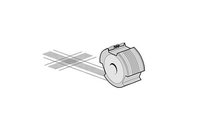Methods for Applying X-ray Testing Equipment in Electronic Components
Date:2024-03-26 17:25:34 Views:1363
X-ray testing is a non-destructive testing method that does not damage the object itself and has been widely used in materials inspection (QC), failure analysis (FA), quality control (QC), quality assurance and reliability (QA/REL), research and development (R&D) and other fields.
It can be used to detect defects (cracks, delamination, voids, etc.), such as delamination and cracks in electronic components, light-emitting diodes, metal substrates, etc., and to determine whether there are defects in the material, shape, size, orientation, etc. of the defects by detecting image contrast.
_20240326172450_195.jpg)
In the semiconductor industry, X-ray testing equipment is commonly used to detect the quality of chips and wafers, as well as potential defects in the manufacturing process. Mainly reflected in the following aspects:
1. Defect detection during wafer production: During wafer production, there may be issues such as gas, defects, and foreign objects. X-ray detection equipment can scan and detect these issues on the wafer to ensure production efficiency and wafer quality.
2. Inspection of Package Finished Products: Package finished products are the next step after wafer production is completed. X-ray inspection can scan and inspect the finished products, which plays an important role in detecting the shape and solder quality of the finished products to ensure their integrity and quality.
3. Defect detection of chips: The manufacturing of chips may have defects, including dead pixels, defective circuits, etc. These defects
It may cause the chip to malfunction, so it is necessary to use X-ray detection equipment to detect defects in the chip and promptly detect and repair problems.
In the process of semiconductor packaging testing, the faster the sample verification, the more likely it is to ensure the rapid launch of its products. The business model of seamless integration and mass production between chip design enterprises and semiconductor packaging testing factories. After the product quality and yield are fully verified, mass production is outsourced to large packaging factories. The seamless integration of mass production helps chip companies not to worry about packaging processes, promoting the growth of a new model in the field of packaging testing.
X-ray non-destructive testing (NDT) technology, as a part of the semiconductor packaging and testing industry chain, has achieved 100% online testing in the field of semiconductor packaging and testing, becoming a necessary means of verifying product quality. With the iterative updates of new semiconductor chip technologies, non-destructive testing is facing increasing pressure. One is that the requirements for detection efficiency are becoming increasingly high. Secondly, the difficulty of detection has also increased. In the past, packaging technology could still visually inspect the pins, but now BGA technology cannot see most solder balls at all, and can only use X-ray for perspective detection.
The development speed of the semiconductor industry is far ahead of other industries, and its production capacity and technological iteration are also the fastest. Nowadays, the production mode is no longer ignored, and the size of a fingernail can carry billions of transistors. Before the chip is launched into the market, a series of precise and complex verification processes are carried out. As the chip volume is designed to be smaller and smaller, X-ray testing equipment is required to have high magnification and resolution, and the detection accuracy is required to ensure that important solder joint defects are not missed.
For this reason, X-ray detection technology is also constantly improving its technology, developing towards high precision and intelligence, keeping up with new trends and requirements in semiconductor packaging testing to meet the testing requirements of semiconductor chips.
In addition, X-ray testing equipment can also be used to detect automotive grade power semiconductors after packaging, helping to improve product consistency. By utilizing the penetrability of X-rays, a large number of power semiconductors can be inspected 100% online without damaging the appearance of the product, ensuring that all automotive semiconductors leaving the factory have no defects in the production process and improving product reliability.




 Weixin Service
Weixin Service

 DouYin
DouYin
 KuaiShou
KuaiShou





















